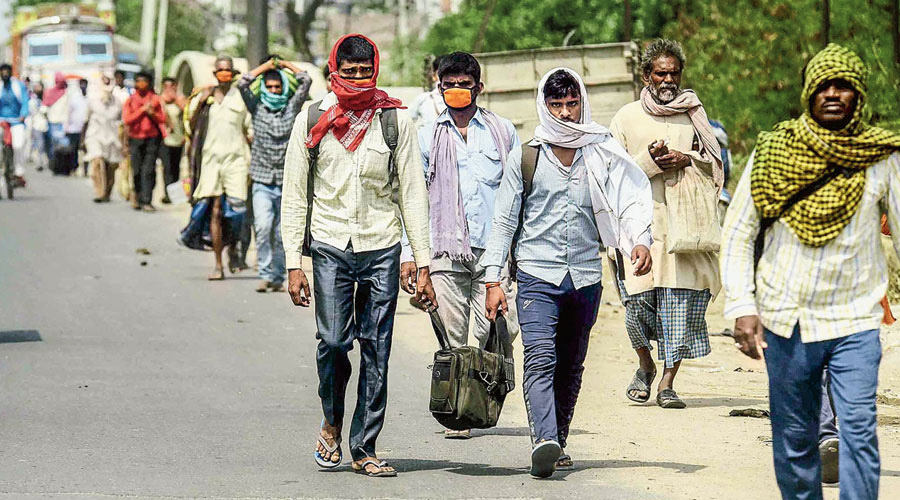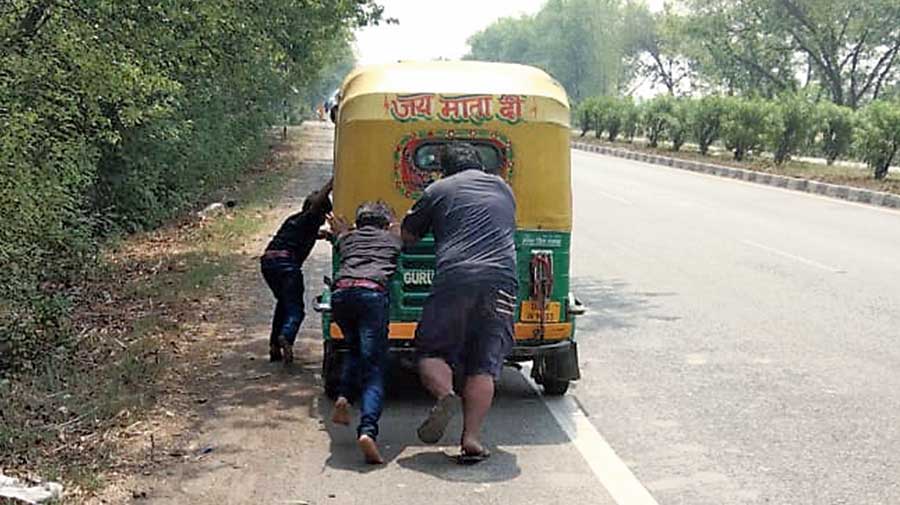Thousands of migrant workers in cities such as Delhi and Calcutta are unable to access subsidised foodgrains either because they don’t have ration cards or because the cards they have are registered elsewhere.
After sitting idle for over a week, migrant construction worker Guna Nayak was happy to get a day’s work to clean a showroom in South Extension in Delhi.
The owner was “very kind hearted,” Guna said. The wage of Rs 500 was Rs 100 more than what he usually gets from construction work. More importantly, Guna got 3kg rice and 5kg wheat as a gesture of help.
“We had finished the rations at home. Seth ji was a nice man. He realised the difficulties of the workers at present. He gave me ration and also assured more help in future. Now I can manage for a few more days,” Guna said.
Guna, a permanent resident of Kendrapada in Odisha, lives with his wife and daughter in a one-room house in Kotla Mubarakpur here. His wife does embroidery work and earns around Rs 100 a day. Guna pays Rs 3,000 as monthly rent.
“If we can get ration here, it will be of great help for us. I have enquired at the ration shop here. They asked me to get my ration from the shop in Odisha. Now I am neither getting ration in Odisha nor here,” Nayak said. He is not registered for subsidised food in Odisha either.
Under the National Food Security Act (NFSA), eligible families get 5kg dry ration per person per month at Rs 3 per kg of rice and Rs 2 per kg of wheat. But for this, they need ration cards.
Sushil Raut, another worker from Odisha, does have one but that is registered in his home state and he cannot get food in Delhi where he works.
“We are managing with the ration we had. We will go back to our village next week,” Raut, a father of two, said.
The Centre had launched the One Nation One Ration Card scheme to make subsidised foodgrain accessible to beneficiaries anywhere in India. Several states, including Delhi and Bengal, are yet to join the scheme. According to official data, 26 states have joined the scheme.
Last week, the Centre decided to allocate free foodgrains of 5kg per person per month for May and June to nearly 80 crore beneficiaries under the food security act.
Food rights activist Deepa Sinha appeared sceptical about all migrant workers getting the free grains. She said only 10,000 ration card holders had accessed the benefits under the one nation one ration card scheme in April.
The government should provide ration even to workers who do not have cards, Sinha said. “The Centre’s announcement will benefit some migrants, not all,” she added.
Economist Sunil Ray, former director of A.N. Sinha Institute of Social Studies, Patna, sought social security protection for the workers, including access to food and shelter, medical coverage, education for children, pension and allowance for the period they remain unemployed.
He said: “The migrant workers are levers of the economic growth but they are the most vulnerable section of the society. In case of any emergency, the State as an institution withdraws from extending any support to them. This is barbaric manifestation of the behaviour of the State.”












